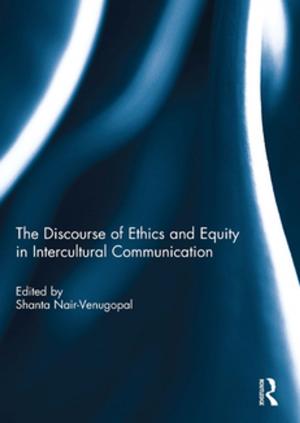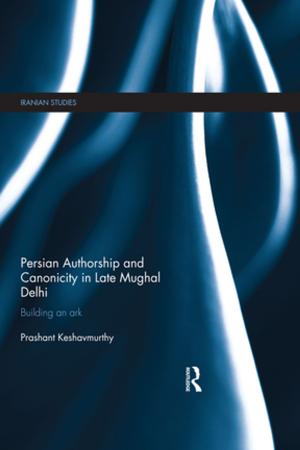Gandhi
An Impossible Possibility
Nonfiction, Religion & Spirituality, Philosophy, Political, Social & Cultural Studies, Political Science, Social Science| Author: | Sudhir Chandra | ISBN: | 9781315387284 |
| Publisher: | Taylor and Francis | Publication: | December 1, 2016 |
| Imprint: | Routledge India | Language: | English |
| Author: | Sudhir Chandra |
| ISBN: | 9781315387284 |
| Publisher: | Taylor and Francis |
| Publication: | December 1, 2016 |
| Imprint: | Routledge India |
| Language: | English |
For a man who made such a powerful intervention in the history of the 20th century, many of Mahatma Gandhi’s ideas were misunderstood or obfuscated during his lifetime. This book draws our attention to Gandhi’s last years, particularly the marked change in his understanding of the acceptance of non-violence by Indians. It points to a startling discovery Gandhi made in the years preceding India’s Independence and Partition: the struggle for freedom which he had all along believed to be non-violent was in fact not so. He realised that there was a causal relationship between the path of illusory ahimsa which had held sway during the freedom struggle and the violence that erupted thereafter during Partition.
Calling for a serious rethink on the very nature and foundation of modern India, this book throws new light on Gandhian philosophy and its far-reaching implications for the world today. It will interest not only scholars and researchers of modern Indian history, politics, and philosophy but also lay readers.
For a man who made such a powerful intervention in the history of the 20th century, many of Mahatma Gandhi’s ideas were misunderstood or obfuscated during his lifetime. This book draws our attention to Gandhi’s last years, particularly the marked change in his understanding of the acceptance of non-violence by Indians. It points to a startling discovery Gandhi made in the years preceding India’s Independence and Partition: the struggle for freedom which he had all along believed to be non-violent was in fact not so. He realised that there was a causal relationship between the path of illusory ahimsa which had held sway during the freedom struggle and the violence that erupted thereafter during Partition.
Calling for a serious rethink on the very nature and foundation of modern India, this book throws new light on Gandhian philosophy and its far-reaching implications for the world today. It will interest not only scholars and researchers of modern Indian history, politics, and philosophy but also lay readers.















